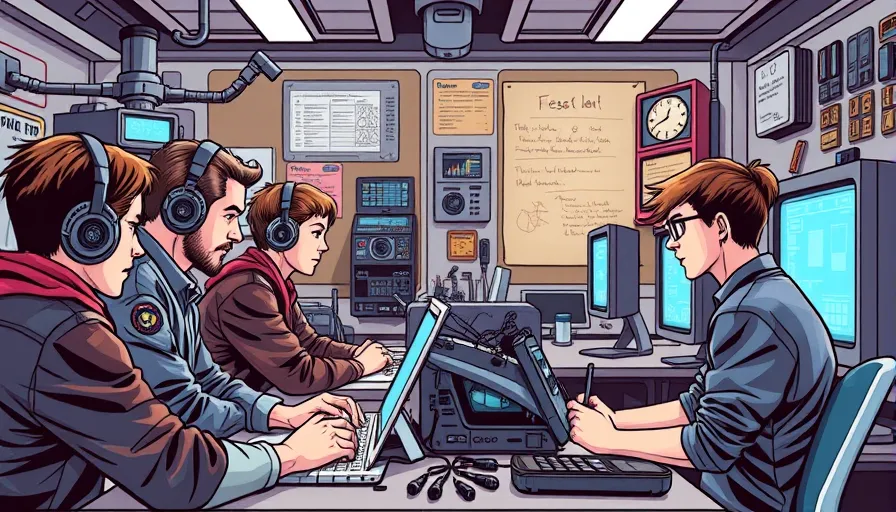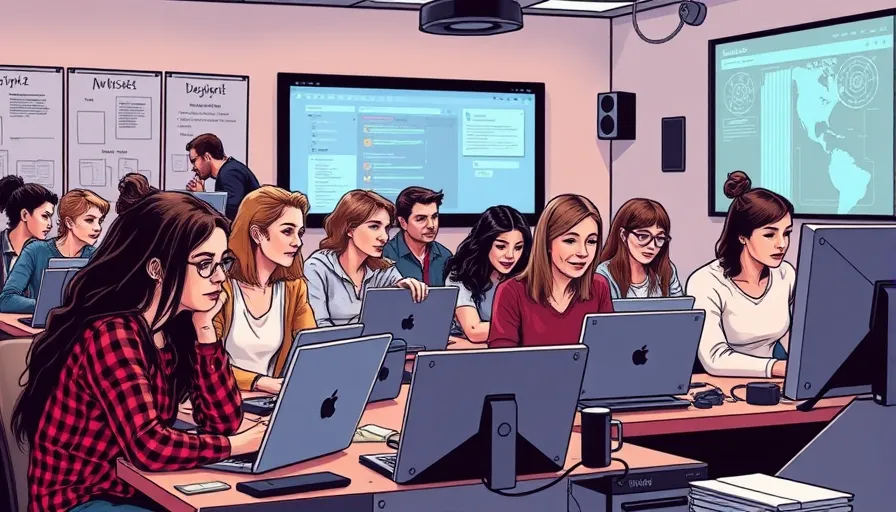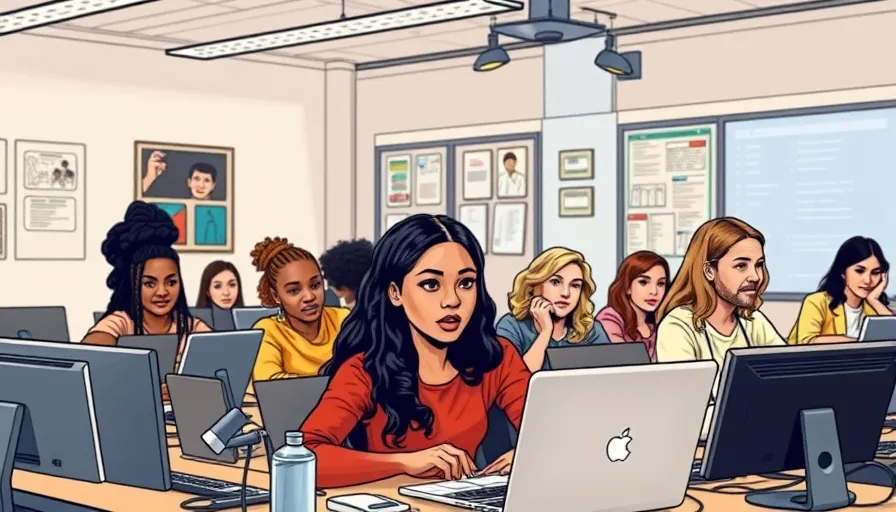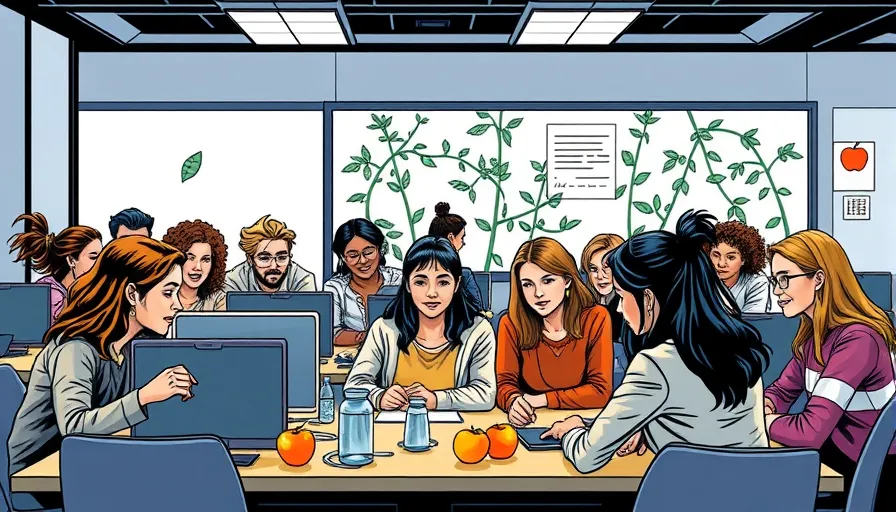General intro by jackie
Look at this room. Wow!
We are sooo not conforming to any norms or standards! Is this a good thing? Definitely. I mean, it is always great to be exceptional, isn't it? Yet, we all are humans too, and in most of us, from time to time, there is a nagging doubt about whether it is really a good thing to deviate from general expectations. And norms and standards can be a helpful thing.
How often have I wished for public standards of interoperability, allowing for anyone to participate in using and building our shared infrastructure that we call internet - and we already have some good standards, without which the internet would not exist in this form, and without which we would not have been able to organise this event in this way.
But imagine you could connect with everyone you want on social media, without the need to give your data to the companies of misogynist authoritarians, or just companies who thrive on creating quasi-monopolies and enforce their own, closed-off norms and standards.

So yes, we are here to change - first of all - our own perception of what norms and standards could be. And we are here, because we don't want to accept that this is what a standard representation of a technology classroom looks like.
This is a picture I generated with an image generator (fastflux) around two years ago with the prompt: "A technology class, comic-style". It is a statistical representation of what "the internet thinks" - kind of a standard representation in our western and global north societies. And we immediately know how this is bullshit, while we also might feel once again, that we might not belong.
But we are here to find out together, how we can hack the tools and technologies around us, to produce better results, that are not reproducing these stereotypes.
So we are here to reconfigure tech, and tech classrooms, or in our case let's be more specific and say IT environments, so that they could look more like this.

A lot better already. This was one of the results when prompting for "A technology class room with mostly female participants, comic-style". But still. We could do better than this, it does not look very diverse, does it? And, a lot of Apple Macs for my taste. Also, now there seems to be less hardware in the room. Why is that? Well, still a lot of stereotypes here. So let's see what we get, when we aim for "An ethnically diverse technology class room with mostly female participants, comic-style":

Nice, so this is a class room which I'd love to participate in. Admittedly, it is still not the most diverse one we could imagine. A lot of human configurations are left out. And then one thing still bugs me, because I am really a Linux and Open Source Software person: there is still an Apple in it, featured here prominently in the front. So let's give it a final try and ask for "An ethnically diverse technology class room with mostly female participants, comic style, no apples":

Here we go. No Macs! Does that reflect our room today? I guess not. At least, we have some apples back there at the snack buffet.
But what is the point of showing you these pictures and pointing towards the core functionality of what some would call "AI" - a thing that does not really exist and which some already call more specifically LLMs (short for Large Language Models), and I would even go further and just call them stochastic word adding machines, or similarly for those image generators which I would call stochastic pixel assemblers. And remember: apples are just more significant than no apples.
So the point is: we won't just get diversity when we don't name and demand it explicitly. And we need to know what the components of diversity are and how significant they are, if we don't want to end up with slightly more comfortable but still pinkwashed reproductions of dominant imaginaries of tech. And there is another subtle point here: we are not really doing tech here, we are doing IT. There is so many other tech disciplines out there, but somehow, we in IT, managed to claim and even monopolise this label for us. So let's not use "tech" when we are not explicitly including mechanical engineers, electrical engineers, architects, and so on.
Of course we are not always aware of everything that is wrong, but once we know something is wrong, we are able to tweak existing systems to generate outputs that where not intended (you might also call this hacking). And this is exactly what we are doing here today. We won't change IT with just one event, but with every such event, we are shifting the imaginable - and the images. And we are creating rooms in which we can explore and figure out how everything could work quite differently in IT.
So during this day, immerse yourself in this experiment and have fun in the tracks which we'll shortly introduce now. And try to stay aware and curious of your socio-physical environment, because after the tracks we will all come together in this room again to share how it was, what we did, and to discuss how this was different from our usual experiences in IT.
Linux & Open Source by Fiona
Hi, my name is Fiona and I'm hosting the Linux & Open Source track.
It's always great to see when people join to work together, self-organize, volunteer and contribute. And really, all of us are part of the event and we make this possible together. Let's form a small community for a day and learn from each other! Nurturing skills takes time and effort and, in the right setting, can be a lot of fun too!
I'm using FOSS to refer to free and open source software. Some people like to use FLOSS with the "L" for "libre" added in, to emphasize, in more languages, that it relates to "freedom".
The FOSS world is mostly created by communities. It lives from many different contributions from many different people. I said "mostly", because companies are often involved too. But for the vast majority of projects, they work together with communities and other companies. Some communities in the FOSS world are not as welcoming as they should be, but many are! Most communities in the FOSS world are not as diverse as they should be, but this is slowly getting better! And this is true for tech and even society in general.
The values of the free software movement align well with social, feminist and democratic ones. And looking at how some corporations try to overextend their control and abuse their power, having a counterweight and alternatives is ever more important. If I wanted to use a buzzword I could say "being sovereign" ;P
Our event today, coming together to learn and do, resonates with the spirit of FOSS too. In the Linux & Open Source track, we first will learn about the values of FOSS. Then we'll take a quick look at the Linux Mint Cinnamon desktop, a beginner-friendly modern distribution. Advanced people can then go the ethical hacking track to learn about KVM and docker, while the rest of our track is trying out Linux Mint with a live USB and/or install it. In the afternoon, we're first gonna hear about how to use Linux for professional audio production for radio. And then, we're gonna discuss and try other software, which people are interested in, and/or do an even deeper dive into audio, hands-on! Let's take care, take our time and enjoy the event!